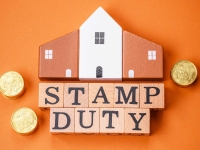How long will my house purchase take?
This will depend on a number of factors. The average process takes between 8-12 weeks.
It can be quicker or slower, depending on the parties in the chain and the circumstances of the transaction.
Costs associated with your transaction
We do not want you to have any unwanted surprises during the course of your transaction so we will give you an estimate of likely costs and disbursements before you decide to instruct us.
Broadly speaking, we will agree a fixed fee with you but if your matter is more complex or it is difficult to know what will be involved, we may agree an hourly rate with you.
We know that every transaction is unique, so we will keep you informed if we identify any additional work which will need to be done in order to successfully conclude your matter.
Freehold sale
How much will the work cost?
Fixed fees
Most solicitors charge a fee proportionate to the value of the property, so the cost of the work depends on the sale price of your property, together with a number of factors including the complexity of the title and third-party involvement.
Our fees range from £725 plus VAT for a freehold sale. The actual fee depends on the price of the property.
| Property Price | Our Fees (excl. VAT) |
|---|---|
| <= £125,000 | £725 |
| <= £200,000 | £775 |
| <= £350,000 | £870 |
| <= £500,000 | £1000 |
| <= £1,000,000 | £1225 |
| <= £1,250,000 | £1475 |
| <= £1,500,000 | £1725 |
| <= £1,750,000 | £2075 |
| <= £2,000,000 | £2575 |
| < £2,000,000 | POA |
In what circumstances could the costs change?
We want to ensure you only pay for the service you receive, so, as an example, a simple house sale with one standard mortgage to redeem will cost less than a complex legal title involving more than one lender or a management company that we need to engage with.
Some factors which could typically increase the cost of the service you require are:
- if the legal title is defective;
- if the title is unregistered;
- if there is a management company that we need to engage with to obtain a deed of covenant or a consent to the sale;
- if we need to comply with a restriction on the title;
- if we discover that the correct consents have not been obtained for alteration works;
- if you have more than one mortgage secured against the property;
- if you are selling through an auction or have tight deadlines to meet;
- if documents or information are requested from you or any other party, which requires our work to be duplicated;
- if the property is subject to amenity land charges.
What are disbursements?
Disbursements are charges levied by third parties which apply to your transaction, and which we will pay on your behalf. These costs are fixed by the third-party supplier and we cannot influence them.
HM Land Registry fees
We will need to obtain official copies of each title document relating to your property, from HM Land Registry. These documents generally cost £3 each.
The above fees are not subject to VAT.
Electronic transfer fee
The charge levied by the firm (which includes the cost payable by us to the bank) is £46.80 inclusive of VAT.
What we will do for you
We will let you have a breakdown of what our fees include, when we provide you with a quote. It may include some or all of the following matters:
- obtaining a redemption figure from your lender and checking with you that the figure is correct;
- obtaining official copy entries and any supporting documents from HM Land Registry which will enable us to prepare the contract to prove that you have the right to sell the property;
- preparing a bundle of contract documents to be sent to the buyer’s solicitor;
- answering any enquiries raised by the buyer’s solicitor and agreeing any amendments to the contract;
- approving the transfer deed;
- exchanging contracts;
- preparing a completion statement for your approval;
- on completion, receiving the sale proceeds from the buyer’s solicitors, repaying your mortgage, paying the estate agents and our fees and then accounting to you for the net sale proceeds.
How long will it take for a leasehold sale?
Generally speaking your sale should take between 8 - 12 weeks to complete but this depends on many factors, including the speed of the buyer’s searches, mortgage funding and the co-operation of all parties.
If you are in a ‘chain’, any dates will need to be agreed with all parties. Please remember that a chain can only proceed once the chain is complete and may depend on when the last person joins it.
Are there any exclusions?
It is important to note that the information above relates to residential conveyancing for individuals who are selling their own property. If any of the circumstances below apply, it is likely to involve additional work or you may require advice from another department within the practice:
- if you are selling a tenanted property;
- if you are acting in your capacity as director of a company and/or require the discharge of any company mortgages at Companies House;
- if the property you are selling is to be transferred out of an existing title and documents need to be drafted or negotiated;
- if you are selling the property as an executor or acting as an attorney under a lasting power of attorney.
Overview of the conveyancing process
As members of the Law Society’s Conveyancing Quality Scheme we follow the Law Society Conveyancing Protocol which is designed to make the conveyancing process as straightforward and efficient as possible.
The steps involved in the sale of your property will include the following:
- If the title to your property is unregistered, we will ask you to supply your title deeds. It is likely however that your property will be registered, and if it is, we can obtain title documents from HM Land Registry electronically.
- Once you have instructed us to proceed, we will send to you a short questionnaire and the relevant protocol forms (property information form, and a fittings and contents form) for completion;
- Once we have received your completed paperwork, along with the memorandum of sale from the selling agents (or details of the buyer’s solicitors from you if it is private sale) we will prepare the contract pack for the buyer’s solicitors.
- As soon as your buyer is in a position to proceed (that is once they have concluded their financial arrangements and completed survey and enquiries, and all relevant searches), we shall discuss with you and agree with your buyer’s solicitor a suitable completion date for your sale. If you have a related purchase, we will also need to agree this date with your seller’s solicitor.
- Once contracts have been exchanged there is a legally binding agreement between you and your buyer for the sale and purchase of your property and you have to complete on the date agreed in the contract.
- On the completion date we will notify you once the sale proceeds are received and advise your estate agent if the sale was negotiated by them and pay their account. We will also pay off any mortgage which you have secured on your property, and either return the net proceeds to you or apply those funds to your related purchase.
Leasehold sale
How much will the work cost?
Fixed fees
Most solicitors charge a fee proportionate to the value of the property, so the cost of the work depends on the sale price of your property, together with a number of factors including the complexity of the title and third-party involvement.
Our fees range from £1125 plus VAT for a leasehold sale.
The actual fee depends on the price of the property.
| Property Price | Our Fees (excl. VAT) |
|---|---|
| <= £125,000 | £1125 |
| <= £200,000 | £1175 |
| <= £350,000 | £1270 |
| <= £500,000 | £1400 |
| <= £1,000,000 | £1625 |
| <= £1,250,000 | £1875 |
| <= £1,500,000 | £2125 |
| <= £1,750,000 | £2475 |
| <= £2,000,000 | £2975 |
| < £2,000,000 | POA |
In what circumstances could the costs change?
We want to ensure you only pay for the service you receive, so, as an example, a simple flat sale with one standard mortgage to redeem will cost less than selling a property with a complex leasehold title, involving more than one lender and a management company that we need to engage with. It is also important to appreciate that on the sale of a leasehold property, we will be required to obtain a Leasehold Information Pack, the cost of which differs considerably between different managing agents. Should you pay your ground rent and service charge to different companies, then there will be two Leasehold Information Packs to acquire and this means that there will be two differing charges. It is important that you budget accordingly and be aware that there are costs that we do not know but will be payable.
Some factors which could typically increase the cost of the service you require are:
- if the legal title is defective, the lease needs to be extended or a deed of variation is required;
- if this is the assignment of an existing lease and is not the grant of a new lease;
- if the title is unregistered;
- if there is an intermediate leasehold title;
- if there is a management company that we need to engage with to obtain a pre-sale pack or to obtain a consent to the sale;
- if there is a freeholder with whom we need to engage in order to obtain a pre-sale pack or obtain consent to the sale;
- if we need to comply with a restriction on the title;
- if we discover that the correct consents have not been obtained for alteration works;
- if you have more than one mortgage secured against the property;
- if you are selling through an auction or have tight deadlines to meet;
- if documents or information are requested from you or any other party, which requires our work to be duplicated.
What are disbursements?
Disbursements are charges levied by third parties which apply to your transaction, and which we will pay on your behalf. These costs are fixed by the third-party supplier and we cannot influence them.
HM Land Registry fees
We will need to obtain official copies of each title document relating to your property and this will include an office copy of your lease. These documents generally cost £3 each.
The above fees are not subject to VAT.
Electronic transfer fee
The charge levied by the practice (which includes the cost payable by us to the bank) is £46.80 inclusive of VAT.
Other disbursements
When selling a leasehold property, there are often additional charges payable to third parties such as the freeholder or a management company. Examples of these are:
- management/pre-sale pack (Law Society form LPE1);
- certificate of consent;
- deed of covenant;
- application to join a management company;
- transfer of a share certificate in the management company.
The above fees vary from property to property and vary considerably depending on the freeholders, landlords and managing agents. We will let you know what these third parties charge when we have engaged with them. These charges may or may not be subject to VAT.
What we will do for you
We will let you have a breakdown of our fees. It may include some or all of the following matters:
- obtaining a redemption figure from your lender and checking with you that the figure is correct;
- obtaining office copy entries and any supporting documents from HM Land Registry which will enable us to prepare the contract to prove that you have the right to sell the property;
- requesting and reviewing the information supplied by the freeholder and/or managing agent (the ‘pre-sale pack’/Leasehold Information Pack);
- preparing a bundle of contract documents to be sent to the buyer’s solicitor;
- answering any enquiries raised by the buyer’s solicitor and agreeing any amendments to the contract;
- approving the transfer deed;
- exchanging contracts;
- preparing a completion statement for your approval, including the calculation of any apportionments of ground rent and service charges;
- on completion, receiving the sale proceeds from the buyer’s solicitors, repaying your mortgage, paying the estate agents and our fees and then accounting to you for the net sale proceeds.
How long will it take?
Generally speaking, your sale should take between six and eight weeks to complete but this depends on many factors, including the speed of the buyer’s searches, mortgage funding and the co-operation of all parties. If a pre-sale pack is required from a management company, it can take much longer to complete than the standard four to six weeks.
If you are in a ‘chain’, any dates will need to be agreed with all parties.
In what circumstances will the above matters not apply to me?
It is important to note that the information above relates to residential conveyancing for individuals who are selling their own property. If any of the circumstances below apply, it is likely to involve additional work or you may require advice from another department within the practice:
- if you are selling a tenanted property;
- if you are acting in your capacity as director of a company and/or require the discharge of any company mortgages at Companies House;
- if the property you are selling is to be transferred out of an existing title and documents need to be drafted or negotiated;
- if you are selling the property as an executor or acting as an attorney under a lasting power of attorney.
Overview of the conveyancing process
As members of the Law Society’s Conveyancing Quality Scheme we follow the Law Society Conveyancing Protocol which is designed to make the conveyancing process as straightforward and efficient as possible.
The steps involved in the sale of your property will include the following:
- If the title to your property is unregistered, we will ask you to supply your title deeds. It is likely however that your property will be registered, and if it is, we can obtain title documents from HM Land Registry electronically.
- Once you have instructed us to proceed, we will send to you a short questionnaire and the relevant protocol forms (property information form, fittings and contents form and a leasehold information form) for completion.
- Once we have received your completed paperwork, along with the memorandum of sale from the selling agents (or details of the buyer’s solicitors from you if it is private sale) and requested, paid for and received the Leasehold Information Pack from the managing agents and/or freeholder, we will prepare the contract pack for the buyer’s solicitors.
- As soon as your buyer is in a position to proceed (that is once they have concluded their financial arrangements and completed survey and enquiries and searches), we shall discuss with you and agree with your buyer’s solicitor a suitable completion date for your sale. We will obtain up-to-date figures from the managing agents and/or freeholders to enable us to calculate apportionments and prepare a completion statement showing the amount due from the buyer’s solicitor. If you have a related purchase, we will agree this date with your seller’s solicitor.
- Once contracts have been exchanged, there is a legally binding agreement between you and your buyer for the sale and purchase of your property.
- On the completion date, we will notify you when we have received the sale proceeds and advise your estate agent if the sale was negotiated by them and pay their account. We will also pay off any mortgage which you have secured on your property, and either return the net proceeds to you or apply those funds to your related purchase.
Freehold purchase
How much will the work cost?
Fixed fees
Most solicitors charge a fee proportionate to the value of the property, so the fee you will pay depends on the price you are paying for your property, together with a number of factors including the complexity of the title and your funding arrangements.
Our fees range from £825 plus VAT. The actual fee depends on the price of the property.
| Property Price | Our Fees (excl. VAT) |
|---|---|
| <= £125,000 | £825 |
| <= £200,000 | £875 |
| <= £350,000 | £950 |
| <= £500,000 | £1170 |
| <= £750,000 | £1275 |
| <= £1,000,000 | £1475 |
| <= £1,250,000 | £1875 |
| <= £1,500,000 | £2075 |
| <= £1,750,000 | £2575 |
| <= £2,000,000 | £3075 |
| < £2,000,000 | POA |
In what circumstances may the costs change?
We want to ensure you only pay for the service you receive, so, as an example, a simple freehold purchase with standard funding arrangements will cost less than a complex freehold purchase involving a lender who requires us to undertake additional work on their behalf.
Some factors which could typically increase the cost of the service you require are:
- if the legal title is defective;
- if the title is unregistered;
- if there is a management company that we need to engage with to ensure compliance with any regulations which may apply;
- if we need to obtain a certificate of compliance for a restriction on the title;
- if the property is subject to a rent charge;
- if we discover that the correct consents have not been obtained for alteration works;
- if you are obtaining financial contributions from third parties;
- if you are purchasing under the help to buy scheme or using a complex funding arrangement;
- if you have the benefit of a Help to Buy ISA;
- if you are purchasing through an auction or from a lender under a power of sale, with tight deadlines to meet;
- if documents or information are requested from you or any other party, which requires our work to be duplicated;
- if the property is a new build or is being transferred out of an existing title;
- if the property is subject to amenity land charges.
What are disbursements?
Disbursements are charges levied by third parties which apply to your transaction, and which we will pay on your behalf. These costs are fixed by the third-party supplier and we cannot influence them.
Which disbursements may apply to my purchase?
Stamp duty land tax/land transaction tax
Please refer to HM Revenue and Customs for relevant rates, or if the property is located in Wales, the Welsh Revenue Authority.
HM Land Registry fees
Please refer to HM Land Registry for relevant rates.
The above fees are not subject to VAT.
Searches
These costs are not fixed. Each search provider will charge a fee for their service and each local authority, water authority (etc.) will have their own fee scale.
Any variation is accounted for on your completion statement during the course of the transaction.
Some searches are subject to VAT.
Electronic transfer fee
The charge levied by the practice (which includes the cost payable by us to the bank) is £46.80 inclusive of VAT.
What we will do for you
We will let you have a breakdown of what our fees include, when we provide you with a quote. It may include some or all of the following matters:
- approving the contract and if required, negotiating amendments;
- reviewing the legal title to the property;
- undertaking searches and raising enquiries;
- reviewing your funding arrangements;
- reporting to you on our investigations;
- acting on behalf of, and reporting to your lender;
- accounting to you with a completion statement and requesting monies from you;
- exchanging contracts and undertaking pre-completion searches;
- completing the purchase for you, paying the purchase price and any monies agreed for any items to the seller’s solicitors;
- submitting your stamp duty land tax return to HM Revenue and Customs (or where the property is in Wales, submitting your land transaction tax return to the Welsh Revenue Authority) and paying any duty owed;
- registering your ownership of the property with HM Land Registry;
- sending copy documents to you following registration together with any other documents which you may need when you come to sell the property.
How long will it take?
Generally speaking your purchase should take between 10-12 weeks to complete but this depends on many factors, including the speed of your searches, mortgage offer and the co-operation of all parties.
If you are in a ‘chain’, any dates will need to be agreed with all parties.
In what circumstances will the above matters not apply to me?
It is important to note that the information above relates to residential conveyancing for individuals who are buying a property to live in. If any of the circumstances below apply, it is likely to involve additional work, or you may require advice from another department within the practice:
- if you are purchasing the property as an investment;
- if you are purchasing in the name of your limited company or a partnership;
- if the property you are buying is to be transferred out of an existing title and documents need to be drafted.
Overview of the conveyancing process
As members of the Law Society’s Conveyancing Quality Scheme we follow the Law Society Conveyancing Protocol which is designed to make the conveyancing process as straightforward and efficient as possible.
The steps involved in the purchase of your property will include the following:
- Once we have received a memorandum of sale from the selling agent, or details of the transaction from you if your matter is a private sale, we will ask you to complete a short questionnaire, provide evidence of identity and your funding arrangements, including evidence as to the deposit, and to put us in funds to enable us to commence searches.
- The seller’s solicitors will supply us with a contract pack, including title deeds to the property, a plan, protocol forms (a property information form, and a fittings and contents form), a contract and the energy performance certificate.
- We will check title to the property, order searches, approve the contract and draft a transfer deed. We will also raise any relevant enquiries with the seller’s solicitors so that we can report to you thoroughly.
- We would recommend you have a survey carried out, as we are unable to advise you on matters such as the physical structure of the building. If you are getting a mortgage, your lender will also carry out a valuation of the property, but please remember that the valuation is only for the benefit of the lender and you should not rely on the valuation. You should let us have a copy of your survey and mortgage valuation.
- Once we have received your mortgage offer, searches and replies to enquiries, we will provide you with a written report on the property for you to consider.
OR
- We will report to you on the legal title to the property, the mortgage offer, results of searches as and when we receive them rather than sending one lengthy report.
- We will also send you a contract and transfer deed to sign, or you can attend the office to sign them and discuss any questions you may have.
- If we are also instructed in your sale, we will ensure that the two transactions can exchange simultaneously, and supply you with completion statements setting out the costs and disbursements incurred in relation to each matter.
- As soon as all parties are in a position to proceed, we will exchange contracts. This is the point at which the agreement is binding, and you cannot pull out of the transaction without incurring penalties. At the point of exchange you should book your removals and put your buildings insurance in place as this is when the risk of the new property will pass to you.
- We will order your mortgage advance, or ask you to put us in funds for any balance required to complete.
- On the completion date, funds will be transferred between solicitors and once completion has taken place, we will notify you and the selling agents so that keys can be released to you.
- Post completion we will submit your stamp duty land tax return to HM Revenue and Customs (or where the property is in Wales, submit your land transaction return to the Welsh Revenue Authority) and pay any duty owed. We will also register you as owner with HM Land Registry and supply you with evidence once HM Land Registry has completed our application.
Leasehold purchase
How much will the work cost?
Fixed fees
Most solicitors charge a fee proportionate to the value of the property, so the fee you will pay depends on the price you are paying for your property, together with a number of factors including the complexity of the title and your funding arrangements.
Our fees range from £1,225 plus VAT. The actual fee depends on the price of the property.
| Property Price | Our Fees (excl. VAT) |
|---|---|
| <= £125,000 | £1225 |
| <= £200,000 | £1275 |
| <= £350,000 | £1350 |
| <= £500,000 | £1570 |
| <= £750,000 | £1675 |
| <= £1,000,000 | £1875 |
| <= £1,250,000 | £2275 |
| <= £1,500,000 | £2475 |
| <= £1,750,000 | £2975 |
| <= £2,000,000 | £3475 |
| < £2,000,000 | POA |
In what circumstances may the costs change?
We want to ensure you only pay for the service you receive, so, as an example, a simple flat purchase with standard funding arrangements will cost less than a complex leasehold title involving a lender who requires us to undertake additional work on their behalf.
Some factors which could typically increase the cost of the service you require are:
- if the legal title is defective, the lease needs to be extended or a deed of variation is required;
- if the title is unregistered;
- if there is an intermediate leasehold title;
- if there is a management company that we need to engage with to ensure compliance with any regulations which may apply;
- if we need to obtain a certificate of compliance for a restriction on the title or you are required to enter into a deed of covenant;
- if we discover that the correct consents have not been obtained for alteration works;
- if you are obtaining financial contributions from third parties;
- if you are purchasing under the help to buy scheme or using a complex funding arrangement;
- if you are having the benefit of a Help to Buy ISA;
- if you are purchasing through an auction or from a lender under a power of sale, with tight deadlines to meet;
- if documents or information are requested from you or any other party, which requires our work to be duplicated;
- if the property is a new build or is being transferred out of an existing title.
What are disbursements?
Disbursements are charges levied by third parties which apply to your transaction, and which we will pay on your behalf. These costs are fixed by the third-party suppliers and we cannot influence them.
Stamp duty land tax/land transaction tax
Please refer to HM Revenue and Customs for relevant rates, or if the property is located in Wales the Welsh Revenue Authority.
If you are purchasing a new lease and an annual rent is payable, you may need to pay stamp duty land tax/land transaction tax on the ‘net present value’.
HM Land Registry fees
Please refer to HM Land Registry for relevant rates.
The above fees are not subject to VAT.
Searches
These costs are not fixed. Each search provider will charge a fee for their service and each local authority, water authority (etc.) will have their own fee scale.
Any variation is accounted for on your completion statement during the course of the transaction.
Some searches are subject to VAT.
Electronic transfer fee
The charge levied by the practice (which includes the cost payable by us to the bank) is £46.80 inclusive of VAT.
Other disbursements
When buying a leasehold property, there are often additional charges payable on completion to third parties such as the freeholder or a management company. Examples of these are:
- deed of covenant;
- certificate of compliance;
- notice of transfer and/or charge;
- share certificate costs;
- apportionments of ground rent and/or service charge.
The above fees vary considerably from property to property and from management company to management company. We will let you know about these charges when we receive details. These charges may or may not be subject to VAT.
Service charges and ground rent may also be payable and we will let you know the anticipated charges when we receive this information.
What we will do for you
We will let you have a breakdown of what our fees include, when we provide you with a quote. It may include some or all of the following matters:
- approving the contract and if required, negotiating amendments;
- reviewing the legal title to the property, including the lease and freehold title;
- reviewing the information supplied by the freeholder or managing agent (the ‘pre-sale pack’);
- undertaking searches and raising enquiries;
- reviewing your funding arrangements;
- reporting to you on our investigations;
- acting on behalf of, and reporting to your lender;
- exchanging contracts and undertaking pre-completion searches;
- accounting to you with a completion statement;
- completing the purchase for you, paying the purchase price to the seller’s solicitors;
- serving any required notices required under your lease;
- making an application to the management company for a new share certificate (if applicable);
- obtaining a certificate of compliance from the freeholder/managing agents for HM Land Registry purposes;
- submitting your stamp duty land tax return to HM Revenue and Customs (or where the property is in Wales, submitting your land transaction tax return to the Welsh Revenue Authority) and paying any duty owed;
- registering your ownership of the property with HM Land Registry.
How long will it take?
Generally speaking, your purchase should take between eight and twelve weeks to complete but this depends on many factors, including the speed of your searches, mortgage offer and the co-operation of all parties. If a pre-sale pack is required from a management company and/or freeholder, it can take much longer to complete.
If you are in a ‘chain’, any dates will need to be agreed with all parties.
In what circumstances will the above matters not apply to me?
It is important to note that the information above relates to residential conveyancing for individuals who are buying a property to live in. If any of the circumstances below apply, it is likely to involve additional work, or you may require advice from another department within the practice:
- if you are purchasing the property as an investment;
- if you are acting in your capacity as director of a company;
- if the property you are buying is to be transferred out of an existing title and documents need to be drafted or negotiated.
Overview of the conveyancing process
As members of the Law Society’s Conveyancing Quality Scheme we follow the Law Society Conveyancing Protocol which is designed to make the conveyancing process as straightforward and efficient as possible.
The steps involved in the purchase of your property will include the following:
- Once we have received a memorandum of sale from the selling agent, or details of the transaction from you if your matter is a private sale, we will ask you to complete a short questionnaire and to put us in funds to enable us to commence searches.
- The seller’s solicitors will supply us with a contract pack, including title deeds to the property, a plan, a copy of the freehold and leasehold title together with a copy of the lease, protocol forms (a property information form, a fittings and contents list and a leasehold information form), a contract and the energy performance certificate.
- We will check title to the property, order searches, approve the contract and draft a transfer deed. We will also raise any relevant enquiries with the seller’s solicitors so that we can report to you thoroughly; it may be that some of these enquiries have to be forwarded to the managing agents/freeholders and this will be done by the seller’s solicitor.
- We would recommend you have a survey carried out, as we are unable to advise you on matters such as the physical structure of the building. If you are getting a mortgage, your lender will also carry out a valuation of the property. Please remember that the valuation is only for the benefit of the lender. You should let us have a copy of your survey and mortgage valuation.
- Once we have received your mortgage offer, searches and replies to enquiries, and the Leasehold Information Pack, we will provide you with a written report on the property for you to consider. We will also send you a contract and transfer deed to sign, or you can attend the office to sign them and discuss any questions you may have.
- If we are also instructed in your sale, we will ensure that the two transactions can exchange simultaneously, and supply you with completion statements setting out the costs and disbursements incurred in relation to each matter.
- As soon as all parties are in a position to proceed, we will exchange contracts. This is the point at which the agreement is binding, and you cannot pull out of the transaction without incurring penalties. At the point of exchange you should book your removals and put your buildings insurance in place as this is when the risk of the new property will pass to you.
- We will order your mortgage advance, or ask you to put us in funds for any balance required to complete.
- On the completion date, funds will be transferred between solicitors and once completion has taken place, we will notify you and the selling agents so that keys can be released to you.
- On completion, we will serve notice on the freeholder and/or managing agents to advise them that you are the new owner of the property so that they may update their records.
- Post completion we will submit your stamp duty land tax return to HM Revenue and Customs (or where the property is in Wales, submit your land transaction tax return to the Welsh Revenue Authority) and pay any duty owed. We will also register you as owner with HM Land Registry and supply you with evidence once HM Land Registry has completed our application, and send you copies of the title together with all documents which you may need when you come to sell the property.
Mortgages and remortgages
How much will the work cost?
Fixed fees
Most solicitors charge a fee proportionate to the value of the funding, so the fee you will pay depends on how much you are borrowing, together with a number of factors including the complexity of the title, who your lender is and what they instruct us to do for them.
Our fees range from £500 plus VAT for a remortgage.
In what circumstances may the costs change?
We want to ensure you only pay for the service you receive, so, as an example, a straightforward transaction involving a freehold property and a standard mortgage will cost less than a complex leasehold property being mortgaged to a lender who requires us to undertake much more detailed reporting on their behalf.
Some factors which could typically increase the cost of the service you require are:
- if the legal title is defective;
- if the title is unregistered;
- if there is a management company that we need to engage with to ensure compliance with any regulations which may apply;
- if we need to obtain a certificate of compliance for a restriction on the title;
- if the property is subject to a rent or estate charge;
- if we discover that the correct consents have not been obtained for alteration works;
- if you are redeeming a help to buy loan;
- if your mortgage lender asks us to comply with additional requirements other than submitting a standard certificate of title on completion;
- if documents or information are requested from you or any other party, which requires our work to be duplicated;
- if you are mortgaging only part of your property.
What are disbursements?
Disbursements are charges levied by third parties which apply to your transaction, and which we will pay on your behalf. These costs are fixed by the third-party supplier and we cannot influence them.
Which disbursements may apply to my mortgage?
HM Land Registry fees
We will need to obtain official copies of each title document relating to your property. These documents generally cost £3 each.
Please refer to HM Land Registry for relevant rates for registration fees.
The above fees are not subject to VAT.
Searches
Your lender may require a full set of searches to be undertaken. These costs are not fixed. Each search provider will charge a fee for their service and each local authority, water authority (etc.) will have their own fee scale. It may be that the lender does not require searches but will accept search indemnity insurance.
Any variation is accounted for on your completion statement during the course of the transaction.
Some searches are subject to VAT.
Electronic transfer fee
The charge levied by the practice (which includes the cost payable by us to the bank) is £46.80 inclusive of VAT. It will be required when we are redeeming your existing mortgage or returning any net proceeds to you on completion.
What we will do for you
We will let you have a breakdown of what our fees include, when we provide you with a quote. It may include some or all of the following matters:
- acting on behalf of you and your lender;
- reviewing the legal title to the property;
- undertaking searches and raising enquiries of the managing agent and/or freeholder if the property is leasehold, or freehold but served by a management company;
- reviewing your mortgage offer and reporting to you on any special conditions;
- attending on you to sign the legal charge (mortgage deed) and ensuring that you are comfortable with the nature and effect of entering into the mortgage;
- reporting to your lender on their standard form of certificate of title;
- undertaking pre-completion searches at HM Land Registry;
- accounting to you with a completion statement;
- redeeming your existing mortgage;
- registering the new mortgage with HM Land Registry.
How long will it take?
Generally speaking our work should take between four and six weeks to complete but this depends on many factors, including the speed of your searches, mortgage offer and the co-operation of all parties.
In what circumstances will the above matters not apply to me?
It is important to note that the information above relates to residential conveyancing for individuals who are mortgaging their own property. If any of the circumstances below apply, it is likely to involve additional work, or you may require advice from another department within the practice:
- if you require a transfer of equity as part of the transaction;
- if the property is a buy-to-let;
- if you own the property in a limited company or a partnership;
- for Help to Buy loans.
Overview of the conveyancing process
If you are at the end of your fixed rate with your current lender and wish to switch to a more favourable rate with a different lender, or decide to extract some equity from your property, you may decide to remortgage.
You should take advice from a suitably qualified advisor before proceeding to ensure the product you choose meets your individual needs.
Once we have received your new mortgage offer, we will investigate title to your property to ensure that it complies with your new lender’s requirements. We may need to carry out searches and investigations and if you already have a mortgage secured against your property, we will make contact with the current lender to obtain a redemption figure.
On the day of completion, we will obtain the advance from your new lender, pay off your existing lender and deal with registration formalities at HM Land Registry to secure the new charge against your property.
Who will act for me?
We will ensure that your transaction is dealt with by an appropriately experienced and qualified member of the conveyancing team. Some of the daily tasks are administrative only and will be undertaken by experienced legal secretaries or conveyancing assistance. The more complicated legal matters are dealt with by Leasa Foster, Sidraa Razaq or Samantha Robertson-Strong. We have expertise in all areas, so you can be confident that you are always in safe hands. Regardless of who is acting on your behalf, they will be supervised by Leasa Foster or Jeremy Conway.








